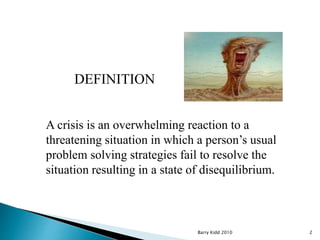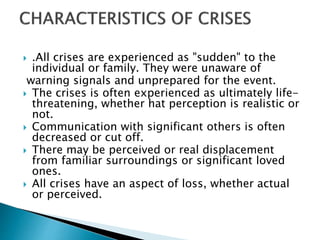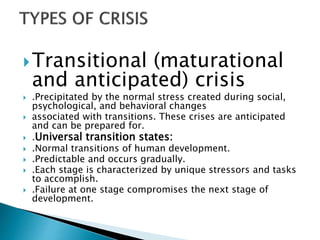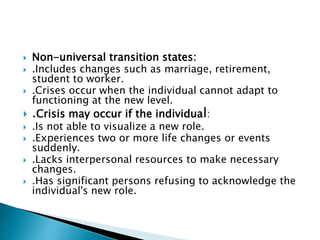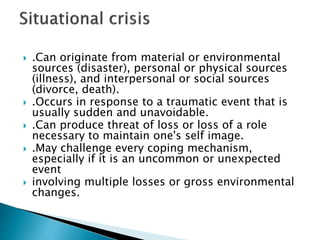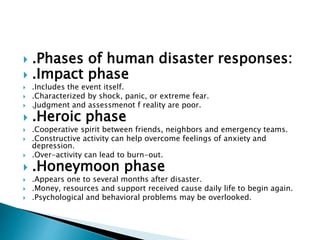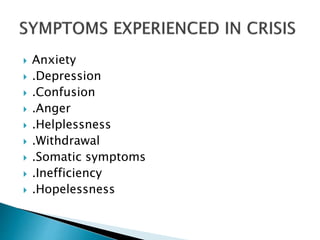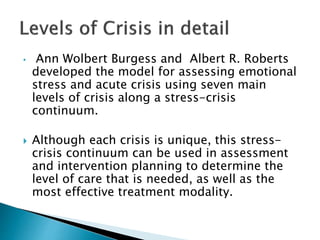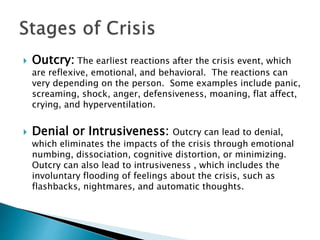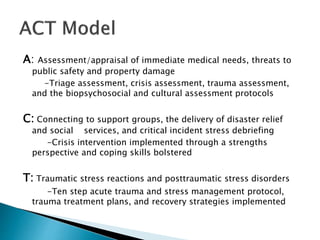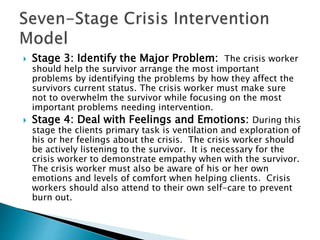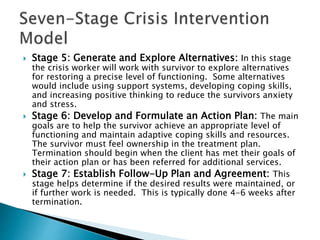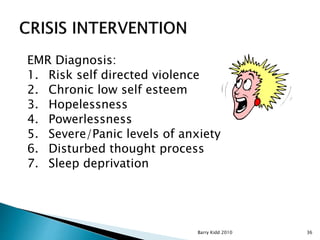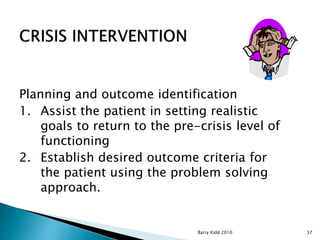The document provides information on crisis intervention models and strategies. It discusses:
1) The seven stage crisis intervention model which includes assessing the crisis, establishing rapport, identifying problems, dealing with feelings, generating alternatives, developing an action plan, and establishing follow up.
2) Critical incident stress debriefing, a strategy used with first responders to traumatic events to discuss the event, promote cohesion, and educate on stress reactions and coping.
3) The ACT model, a three stage conceptual framework that includes assessment, connecting to support, and addressing traumatic stress reactions through a seven stage model, critical incident stress management, and a 10 step acute stress management protocol.

